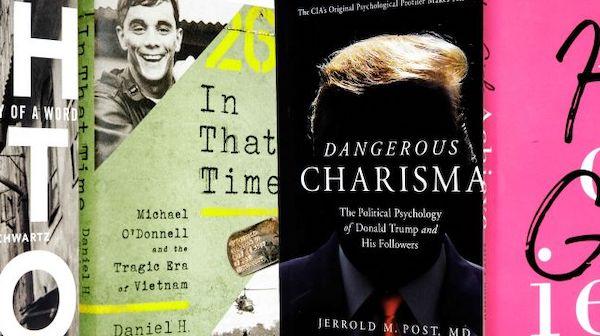A School for Girls
Northwestern professor and alumna Sally A. Nuamah examines a more “gender-sensitive” education.
By Menachem Wecker, MA ’09
A first-generation American raised by a single Ghanaian mom in a low-income Chicago
neighborhood, Sally A. Nuamah, BA ’11, knows something of beating the odds. She earned a doctorate and now teaches at Northwestern University.
“I fit most of the statistical categorizations of disadvantage,” she writes.
Inspired by her mother’s sense of her own school as a refuge, the author examines schools in Ghana, South Africa and the United States and imagines a more “gender-sensitive” educational model that provides safety for all girls, teaches them confidence, strategy and transgression. The book then redefines achievement holistically. The “transgression” part bears elucidation.
This doesn’t mean girls should learn to break rules by skipping schools or running with scissors. Here, Nuamah refers to transgressing gender biases. Schools should “teach girls not only how to deal with challenges but also how to reshape them, subvert them, destroy them, and reconstruct them,” she writes. “In sum, for schools to take on the work of equity and thus liberation, they must disrupt inequitable power relations and redistribute them. Institutions that do this work are not simply friendly to girls or sensitive to gender. They are feminist schools.”
The Cabinet: George Washington and the Creation of an American Institution (Harvard University Press, 2020) By Lindsay M. Chervinsky, BA ’10
A White House Historical Association historian, Chervinsky takes readers back to a time before presidential cabinets existed, sketching a fuming George Washington leaving his first meeting with senators in disgust for their inability to even answer “aye” or “no” to seven questions. The Constitution doesn’t lay out a cabinet by design, but George Washington opted to create one “organically” and in response to governing challenges. The cabinet’s creation, to Chervinsky, “embodies the emergence of the United States.”
Race
(Routledge, 2019)
by Martin Orkin with Alexa Alice Joubin, professor of English, theatre, international affairs, women’s studies and East Asian languages and cultures
The term “race,” and the ideas surrounding it, surface in all sorts of discussions, and in particular during
campaign cycles. But the term and concept have evolved significantly over time and across geographies, and they continue to do so today, often in unexpected ways. For those who want to better understand the history and development of race and racism, this book is an indispensable guide.
Dangerous Charisma: The Political Psychology of Donald Trump and His Followers
(Pegasus Books, 2019)
By Jerrold M. Post, professor emeritus of psychiatry, political psychology and international affairs, with Stephanie R. Doucette, BA ’14
Post, founder of the CIA’s Center for the Analysis of Personality and Political Behavior, has written psychological profiles of political figures like Saddam Hussein. In this book, he trains his scholarly attention on President Trump. The introduction alone is James Bond-worthy fodder, and when he turns to the president, Post writes, “It is as if every thought that passes through Trump’s tumultuous mind must be expressed” and that he has a “Swiss cheese conscience.”
Ghetto: The History of a Word
(Harvard University Press, 2019)
By Daniel B. Schwartz, associate professor of history and Judaic studies
The word “ghetto,” which receives more than 2.75 million hits in a Google News search, dates back to
1516 Venice, when that city’s Jews were forced to live in a contained neighborhood. Over the centuries, the term has expanded and “transcended its Italian roots” and “broke free of its Jewish origins entirely, emerging in the course of the last 70 years or so as a term more commonly associated with African Americans than with Jews.”
In That Time: Michael O’Donnell and the Tragic Era of Vietnam
(PublicAffairs, 2019)
By Daniel H. Weiss, BA ’79
Weiss, president and CEO of New York’s Metropolitan Museum of Art, has no personal connection to the book’s protagonist. But Weiss felt like the helicopter pilot and poet, who was shot down and MIA for nearly three decades, chose him to tell his story. He was most moved by O’Donnell’s request that others “recognize that the controversy of the war was a thing apart from the human tragedy of the soldiers conscripted to enact it.”








